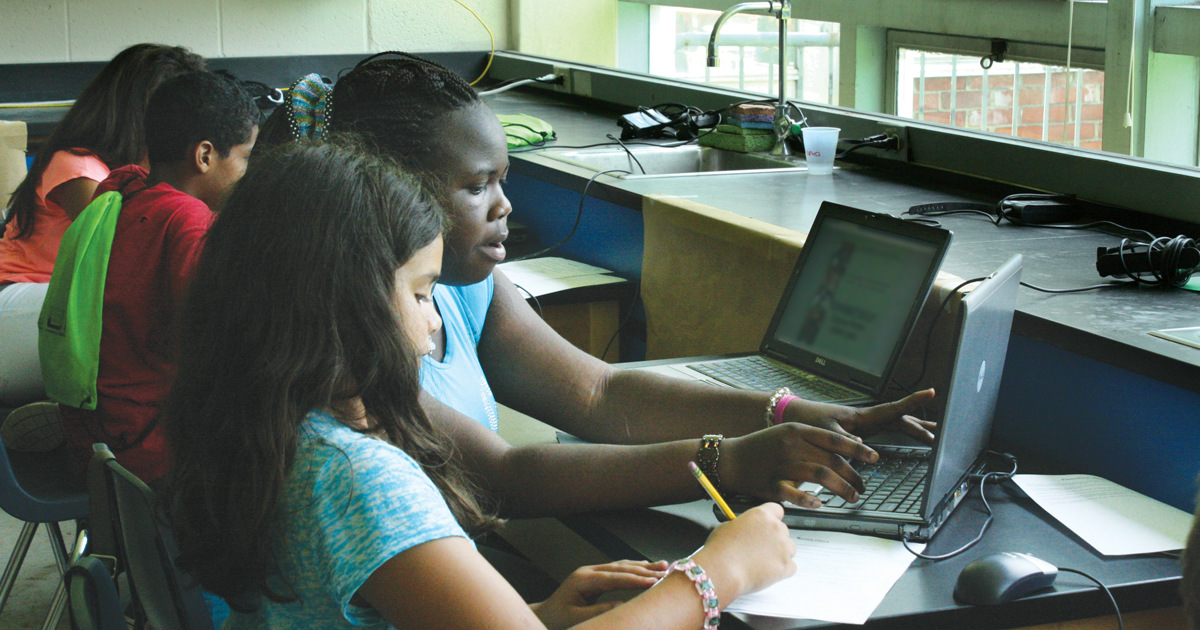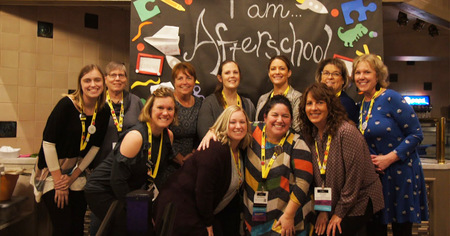The future of work is already here. Let's help our youth prepare for it.
I'm going big and heady here—get ready for it!
Automation, artificial intelligence (AI) and robotics have already taken on today's workspace. At a recent summit on the future of work put on by McKinsey Global Institute and New York University's Stern School of Business, some of the most revered experts in the world shared how the majority of candidates entering the workspace are utterly unprepared. Let's take a brief look at what the summit taught me about the evolving landscape that adoption of these technologies has created (and will continue to create at an epidemic pace) to help ready our students for what's ahead.
Already, you might be thinking about ways new technologies have started affecting your life. How many times have you called customer service, only to get a scaffolded menu run by a polite robotic voice, guiding you forward?
Now, think about how it's already helping you. Do you have an Amazon echo at home? The internet of things (or IoT) is already replacing people with robots to complete easy tasks. And the rise of self-driving cars? That's not even on the horizon anymore; they're already here.
That's the thing. The future of work is already here. If you can believe it, half the tasks performed by today's workforce are already ready to be automated using existing technologies. What?! That blew my mind. If it's half today, in this exponentially-fast changing world, what will it be tomorrow?
The summit expressed that education must be restructured to address these demands; however, to me it seems that traditional school isn't malleable enough to adapt quickly enough.
Out-of-school time work, on the other hand? Well, that's a completely different story. Malleable might as well be our middle name!
What the summit experts taught me is that automation, AI and robotics will not just impact low-skill labor, but every industry at every level of seniority. That's kind of scary, when you first hear it (or at least it was to me!), but the more I thought about it, the more excited I got. I started to think about all the potential it would release on the workforce, the high-level thinking and innovation that will take over the workforce.
How exciting is that?
Beyond the need for STEM (we're with them there!), these experts also spoke about a different need that hit my heartstrings dead-on: the need for human knowledge.
You know, the stuff robots can't do. Social-emotional intelligence. Care-giving. Our line of work, plus many outside of it—not just facilitators, but nurses, social workers, coaches, therapists, teachers—anyone who invests in others.
As venture capitalist (and panelist) Albert Wenger (@alberwenger) put it: "Education needs to go back to raising great human beings, not meeting the needs of the job market." He went on to express that "tomorrow's education will not be focused on what job you are getting, but what kind of person you are becoming."
Be still my heart.
Our community is ready for this work. We're already doing this work.
The summit went on to express the real needs. Tomorrow's workers—today's workers—need to be flexible, adaptable and resourceful. Self-directed searching and learning are quickly becoming (and, in many cases, already are) the norm and need. Rote knowledge of the past will soon be replaced by tablets carrying information and research as up-to-date at the very moment. That's a skill no human can compete with; it's our responsibility to prepare our students with skills that these technologies can't replicate and often surpass.
And—get this—these folks anticipate that, sooner rather than later, jobs as we know them will go away. Yep, you read that right. No more jobs.
But that doesn't mean there's no more work. We are anticipating a gig economy where work is broken down into three different categories: tasks, projects and services.
The good news is that the United States is one of the most prepared economies for this environment. Believe it or not, this transition is already happening here: 35 percent of American workers currently do some type of freelance work. My husband, a children's book designer, is regularly taking on these projects—wich I'm sure is true of many folks reading this very piece.
What does the gig economy look like?
Deep specialization will turn many workers into contractors, as super-specialization is rarely needed on a full-time basis from one firm. Globalization means that tasks and projects will be outsourced to the less-expensive work-seekers overseas. But the gig economy doesn't equal traditional outsourcing as "any layer of inflexibility on the structure of work arrangements will impede progress" (Allen Blue, co-founder of LinkedIn).
So, what economies should we embrace? According to the experts, look at the caring economy (examples above), the craft economy (Etsy is a great example here), and the circular economy (think about all those dying strip malls that need to be broken down and upcycled).
Phew. That's a lot.
So, how do we get ready for this? What do the experts say?
Embrace experiential learning, problem-solving and raising team-players.
Embrace experiential learning, problem-solving and raising team-players.
Embrace experiential learning, problem-solving and raising team-players.
I think we're ready for that.
(By the way, much of this knowledge was gained with social listening—just another 21st Century skill. Want to know more? Feel free to reach out to me. I'd be happy to chat!)

Ali Mercier, Marketing Content Manager at The Leadership Program, prides herself on her "move fast, break things" pace, eager to bring the world of Youth Development into the world of tomorrow. She insists that you find joy wherever you can in life, including (and sometimes especially) in your work. Ali earned her writing degree from the communications- and arts-focused Emerson College in Boston. Connect with her—and Leadership—on Twitter @AliMercier and @Leadershippin.




